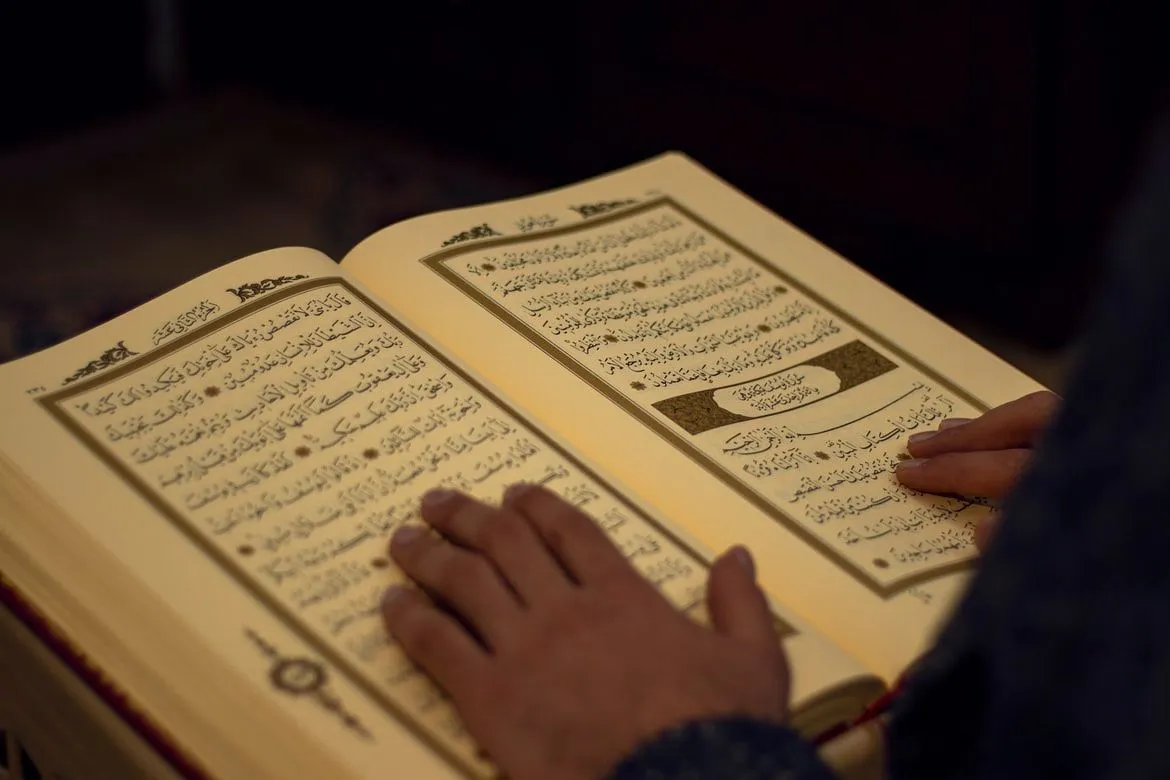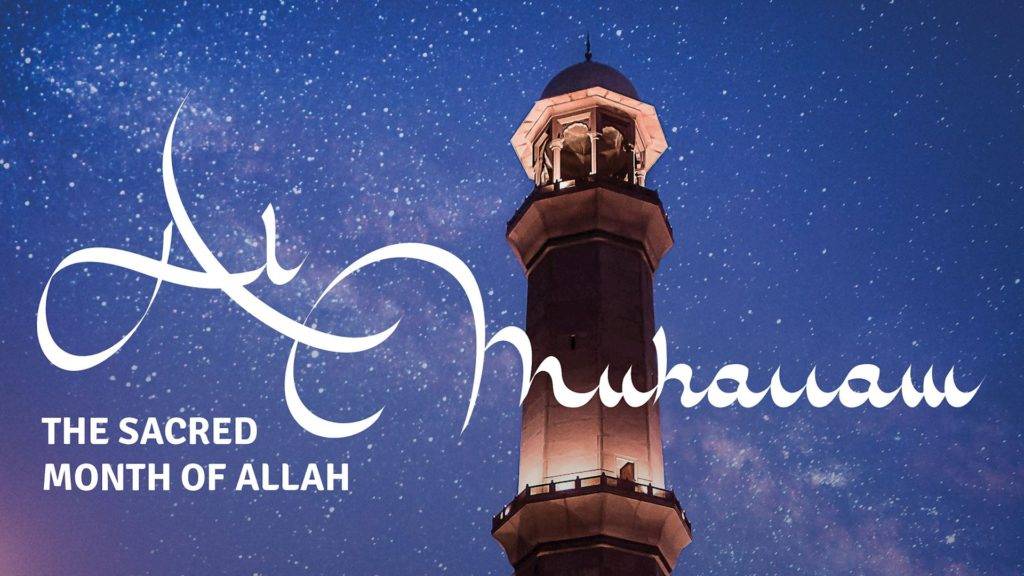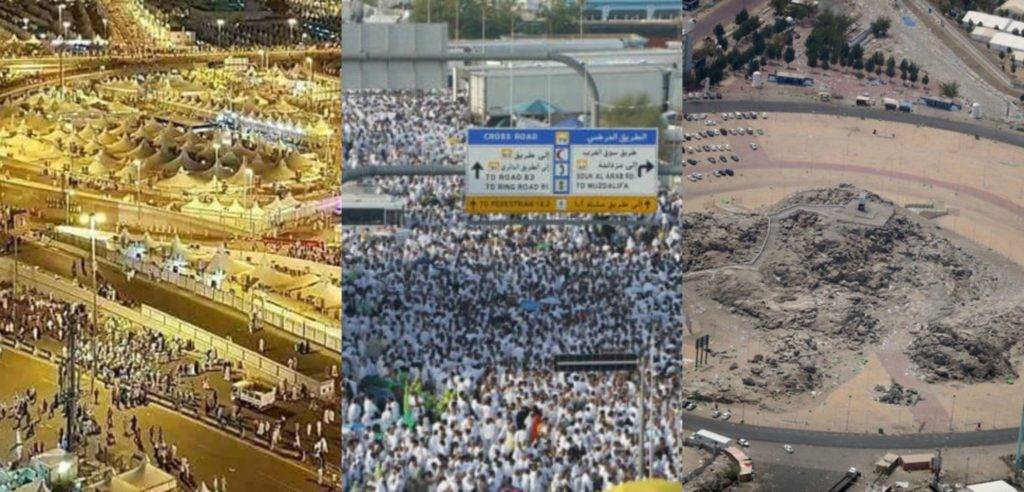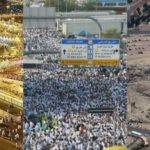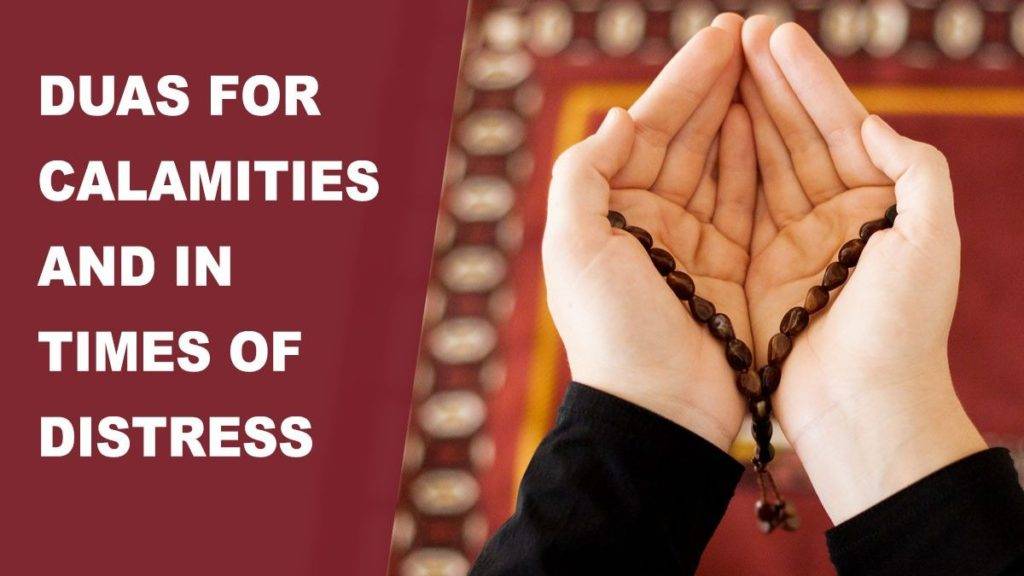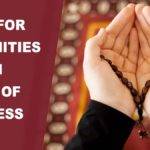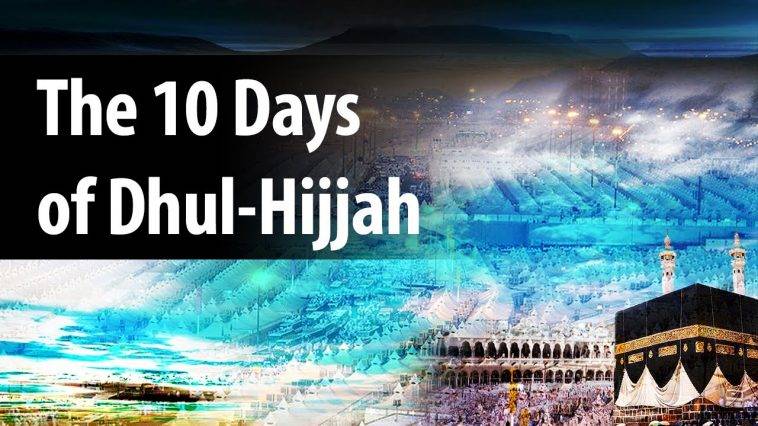
In the Islamic calendar, there are some months that hold special virtue in the sight of Allah (SWT). Among these months, the month of Dhul Hijjah especially the 10 days of Dhul Hijjah are of greater significance. Dhul Hijjah is the month in which Muslims perform Hajj and celebrate Eid Al Adha and sacrifice animals (Qurbani) following Sunnat-e-Ibrahimi.

Significance of the first 10 days of Dhul Hijjah
To emphasize the importance of ceratin aspecets, Allah (SWT) swears different things.
In Surah Al-Fajr, Allah swears: “By the Fajr, And the ten nights.” (89:1-2)
One of the prominent scholars, Ibn ‘Abbas (RA) said that these ten nights mentioned in the Quran are referred to the first ten days of Dhul Hijjah.
However, the importance of these ten days is also explained in the Sunnah of the Messenger (PBUH):
The Prophet (PBUH) said: “There are no days on which righteous deeds are more beloved to Allah than these ten days.” They said: “Not even jihad for the sake of Allah?” He said: “Not even jihad for the sake of Allah, unless a man goes out himself for jihad taking his wealth with him and does not come back with anything.”
(Bukhari)
The above hadith highlights the significance of the first ten days of Dhul Hijjah. There are several good deeds we can do during the first 10 days of Dhul Hijjah to please Almighty Allah and to seek Allah’s mercy. These deeds include offering additional prayers, giving in charity, fasting the day of Arafah, and performing dhikr and dua.
Under this post, we are mentioning some of the best duas and dhikr to do during these 10 days of Dhul Hijjah:
Best 10 duas for the 10 days of Dhul Hijjah
1. It was narrated from Abdullah ibn Umar (RA) that the Prophet (PBUH) said: “There are no days that are greater before Allah or in which good deeds are more beloved to Him, than these ten days, so recite a great deal of tahleel, takbeer and tahmeed during them.” (Ahmad)
It is a beautiful reminder to perform dhikr throughout these 10 days of Dhul Hijjah.
2. “Rabbana aatina fid-dunya hasanatan wa fil ‘akhirati hasanatan waqina ‘adhaban-nar.”
“Our Lord! grant us good in this world and good in the hereafter, and save us from the punishment of the fire.” (2:201)
This is a great dua that protects us and asks the best of this world and hereafter. It is a comprehensive dua that we say during Tawaf and in the Tashahhud in prayer before the salam.
3. “Rabbana la tu’akhidhna in-nasina aw akh-ta’na. Rab-bana wa la tahmil ‘alayna isran kama hamaltahu ‘ala-lladhina min qablina, Rab-bana wa la tuhammilna ma la taqata lana bih, wa-‘fu ‘anna wa ‘ghfirlana warhamna anta Maulana fansurna ‘alal-qawmil kafirin.”
“Our Lord! do not punish us if we forget or make mistake; Our Lord! do not lay on us a burden as You did lay on those before us; Our Lord! do not impose upon us that which we have not the strength to bear, and pardon us and grant us protection and have mercy on us, You are our Protector, so help us against the unbelieving people.” (2:286)
This dua is one of the best duas to ask for Allah’s forgiveness, ease and protection. We can recite this dua in the troublesome era of COVID-19.
4. “Rabbana hab lana min azwajina wa dhuriyyatina qurrata A’yunin waj’alna lil-muttaqina imama.”
“Our Lord! grant us in our spouses and children the joy of our eyes and make us an example for the righteous.” (25:74)
Recite this dua to ask Allah for righteous spouses who will be their comfort.
5. “Rabbi awzi’ni an ashkura ni’mataka alati an’amta ‘alayaa wa ‘ala walidayya wa an a’mala salihan tardahu wa aslih li fi dhurriyyati, inni tubtu ilaika wa inni minal-muslimeen.”
“O My Lord! grant me that I should be grateful for Your favor which You have bestowed on me and my parents, and that I should do good such as You are pleased with and do good to me in respect of my offspring; surely I turn to You, and truly I submit (to You) in Islam.” (46:15)
Recite this dua to ask for blessings from the Almighty Allah and to increase gratitude. If we will be thankful to Allah in a tough situation, then Allah will give us more blessings inshaAllah.
6. “Rabbanaghfir lana wa li-ikhwanina aladhina sabaquna bil-imani wa la taj’al fi qulubina ghillan lil ladhina amanou Rabbana innaka Ra’ufur Rahim.”
“Our Lord! forgive us and those of our brethren who had precedence over us in faith, and do not allow any spite to remain in our hearts towards those who believe, Our Lord! surely Thou art Kind, Merciful.” (59:10)
Dhul Hijjah is a month of forgiveness so let go of all grudges and cleanse your hearts by reciting all duas and performing deeds Allah (SWT) has mentioned.
7. “Rabbana la tuzigh qulubana ba’da idh hadaitana wa hab lana min ladunka rahmah, innaka antal Wahhab.
“Our Lord! do not make our hearts deviate after You have guided us aright and grant us from Your mercy; surely You are the Giver.” (3:8)
This is one of the beautiful duas to ask consistent guidance and mercy from Almighty Allah. We say this dua by invoking upon Allah’s beautiful name, Al-Wahhab (the One Who Loves to Give Gifts).
8. “Rabbana dhalamna anfusana, wa in lam taghfir lana wa tarhamna la-nakunanna minal-khaasireen.”
“Our Lord! we have been unjust to ourselves, and if You forgive us not, and have (not) mercy on us, we shall certainly be of the losers.” (7:23)
This dua is recited by Adam (AS) and Hawwa after they were removed from Heaven after a mistake. Allah (SWT) taught Adam (AS) to turn to Him in repentance from a sincere heart. As a result of asking for repentance, Allah forgave them.
9. “Rabbana taqabbal minna, innaka antas-Sami’ul-‘Aleem.”
”Our Lord! Accept (this service) from us. Verily! You are the All-Hearer, the All-Knower.”
It is a wonderful dua that Ibrahim (AS) made after he and Ismail (AS) finished building the Kabah. Dul Hijjah is a Qurbani season and it is a great lesson we get from Ibrahim’s story of sacrifice.
10. “Our Lord! And make us submissive unto You and of our offspring a nation submissive unto You, and show us our Manasik (all the ceremonies of pilgrimage – Hajj and Umrah, etc.), and accept our repentance. Truly, You are the One Who accepts repentance, the Most Merciful.
In this dua, Ibrahim (AS) asks Allah for forgiveness and asks guidance to worship Him at best.
These were some of the most significant duas that we should recite in the first 10 days of Dhul Hijjah and other days. Make sure to memorize these duas to ask forgiveness and guidance from Almighty Allah.
May Allah (SWT) enable us to worship Him with steadfastness and devotion throughout our lives.
MuslimKits always welcomes beneficial information, new thoughts, and opinions from everyone, so if you have something to share then write to us and spread your words.

